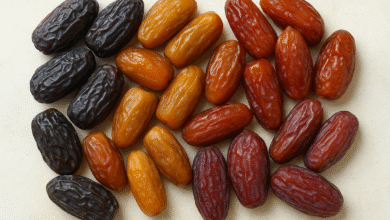UAE industrial exports hit $53.6bn, driven by strong local manufacturing growth
With Operation 300bn, trade deals, and the ICV programme, the UAE cements its role as a global industrial hub ahead of the 2024 forum

UAE Industrial Sector Surges Ahead with Dh197 Billion in Exports, Reinforcing Global Trade Ties and Economic Diversification Goals
The industrial sector in the UAE is still growing; in 2023, industrial exports reached Dh197 billion ($53.6 billion), a 5% annual growth and a significant 68% increase since 2020. This steady increase is a direct result of the country’s strategic drive towards industrialization, reducing oil dependence and expanding global trade.
Industrial development as a fundamental aspect of economic planning
Dr. Sultan Al Jaber, ADNOC CEO and UAE Minister of Industry and Advanced Technology, stressed the key role of industry in the country’s development in a press conference on Thursday. He highlighted that industrial development is central to diversifying the economy, improving resilience and creating skilled employment.
“The industrial sector serves as a powerful engine for economic diversification and national empowerment,” said Dr. Al Jaber. “It enhances competitiveness irrespective of global uncertainties such as oil price volatility or geopolitical shifts.”
His remarks came ahead of the fourth edition of the ‘Make it in the Emirates’ forum, scheduled to take place in Abu Dhabi from May 19 to 22, a major platform promoting industrial investments and partnerships.
Operation 300bn: A Decade-long Blueprint for Transformation
Launched in 2021, Operation 300bn is a comprehensive 10-year strategy that is at the heart of the UAE’s industrial expansion. By 2031, the industrial sector’s share of the country’s GDP is expected to have increased from Dh133 billion to Dh300 billion. In order to provide the conditions for growth that is both sustainable and driven by innovation, this ambitious agenda focuses on important sectors such as manufacturing, technology, renewable energy, and logistics.
Comprehensive Trade Pacts Fuel Global Integration
The UAE’s aggressive international trade policy has been a major factor in its industrial development. India, Turkey, Israel, Indonesia, Georgia, and Mauritius are among the strategic partners with whom the nation has signed 21 Comprehensive Economic Partnership Agreements (Cepas). With ratifications still pending for accords including Colombia, South Korea, Australia, New Zealand, and Malaysia, many of these agreements are now in effect.
These agreements help remove trade barriers, expand market access, attract foreign investment, help UAE-made goods reach new shores, and strengthen the country’s position in global value chains.
5 trillion dirhams in foreign trade and a strong surplus
According to data shared by Dr. Al Jaber, the UAE’s foreign trade in 2024 exceeded 5 trillion dirhams ($1.36 trillion), resulting in a surplus of 490 billion dirhams. He attributed this to the UAE’s economic transparency, active adherence to trade agreements, and its policy of free movement of trade, capital, and people.
“Our trade model is based on connectivity, openness, and flexibility,” Dr. Al Jaber noted. “This approach has enabled the UAE to act as a strategic economic bridge between East and West.”
Driving Local Value Through ADNOC’s ICV Programme
One of the pillars strengthening local industrial output is ADNOC’s In-Country Value (ICV) Programme, initiated in 2018. The initiative is designed to boost domestic procurement and nurture local supply chains by channeling investments back into the UAE economy.
Since its launch, local spending through the ICV programme has grown six-fold — from Dh18 billion in 2018 to Dh110 billion in 2023. In total, the programme has contributed over Dh347 billion to the UAE’s economic landscape, benefitting Emirati products, businesses, and workforce development.
‘Make it in the Emirates’ Forum Expands Significantly
This year’s edition of ‘Make it in the Emirates’ will be held on an unprecedented scale. Five times larger than the previous year, the show will cover 68,000 square meters and include over 700 exhibitors, including both established industry titans and up-and-coming innovators. It is anticipated to be a crucial platform for negotiating, exchanging information, and showcasing industrial investment prospects in the United Arab Emirates.





